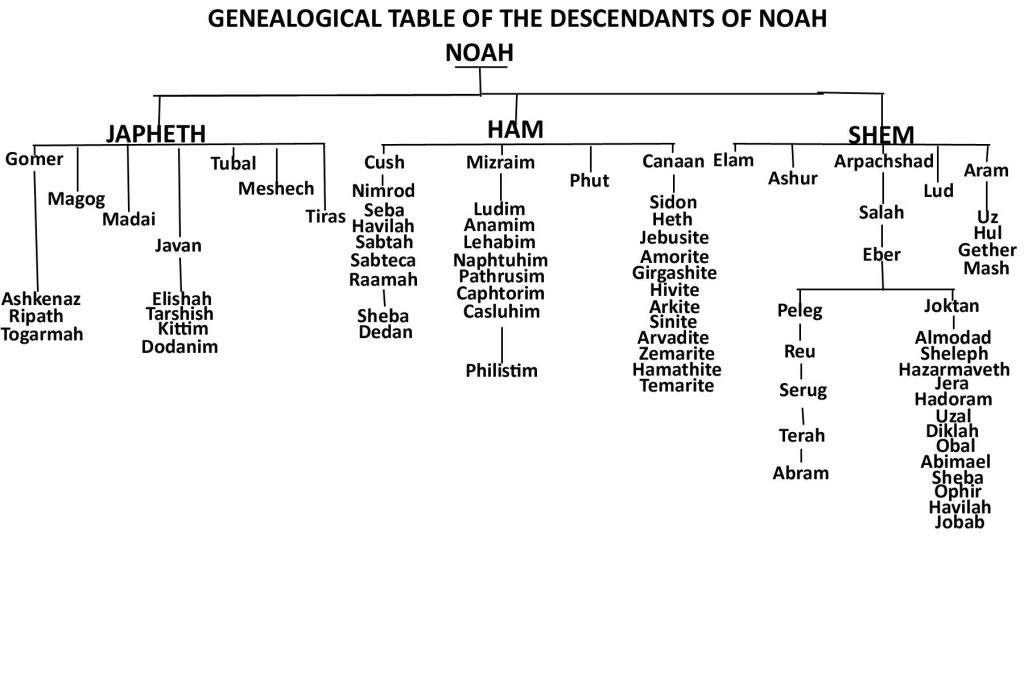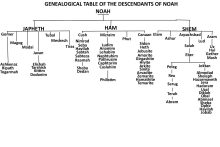From the late eighties onward, I associated all gods of ancient lore as a lineage of predecessors in the new epoch of humanity after the flood. They are removed in time by scores of millennia. They were no longer myths to me. The conclusion provides recognition of the female gods of ancient lore while expanding the numbers of these magnificent men and women.
Genesis isn’t the only flood legend. These tales originated all over the world and were written long before influence from other regions. There are more than twenty-five clearly written pantheons of ancient lore – each derived in their own regions of the world – along with more than 300 tales from all parts of the world with the same core theme.

Religious beliefs don’t consider Noah and his family to be gods. Curiously, the book of Genesis clearly spells out the nearly one thousand year lifespan of Noah and merely a few others. But by looking closer we find nations and regions named after them, which indicates very lengthy periods of time and honor.
In my later inquiries, I stumbled upon Arthur Custance Ph.D., an amazing man whose writings in the “Doorway Papers Series” helps to support this conclusion. The unrecognized pantheon is the Table of Nations – a lineage of Noah and his family and their offspring – many of whose names were used for countries and regions in establishing the eastern hemisphere. It is unrecognized because the religious guidelines denied “false gods” and thus the names of gods were purely mythical.
Notably, the names in the Table of Nations could very well be referred to as different names in a different Pantheon. One example known for sure is Iapetos, or Iapetus – one of the mighty ones in the Greek pantheon – whose name appears as a translation for Japheth. The Greek alphabet does not contain the letter “J” and substitutes the letter “I” for “J.”
The names in the bible may have been the result of the writers’ decision to include the names of gods from the tales in their region. Learning the history of Israel can be a story in and of itself. The table is a minimized patriarchal approach to history, which proves the systemic faults and their influence on history itself. It’s important to understand that power begets power- not truth. Winners write history.
The Table of Nations can now be considered a King list. Never before has anyone considered that notion – not even Mr. Custance. It’s much like the Palermo Stone, Turin Papyrus, Abydos King list, Sumerian King list and others.
But let’s not concede these to be the only lists because ancient lore includes the Greek Pantheon, Roman Pantheon, Egyptian Pantheon, and a score more. Could all of them be part of the same tree of survivors? Yes, that is my clear position in Alpha to Omega.
Noah bears remarkable resemblance to the similar gods of ancient Mesopotamian lore. Utnapishtim, Zisudra, Xisuthros and Atrahasis. In Hindu mythology, Manu is a righteous man who is warned by the god Vishnu (in the form of a fish) about an impending flood and is instructed to build a vessel to save himself and the seeds of life, mirroring Noah’s story.
Deucalion and his wife Pyrrha are the only humans to survive a flood in Greek mythology, and they repopulate the earth by throwing stones behind them which turn into people, sharing a similar theme of renewal after a cataclysmic event.
Legendary folklore like this exists for one reason only – they are shattered tales that survived the eons of time because of their crucial significance to the origin of our species. There was one Great Flood and one Great Patriarch of the new age. Noah is the central figure and is revered in all of the myths of Mesopotamia, India, Greece.
Importantly, Central and South America’s tales of Inca and Aztec gods – Viracocha and Quetzalcoatl – bare the same descriptions of the biblical Noah with pure white skin and flowing white hair.
This is not a coincidence.

